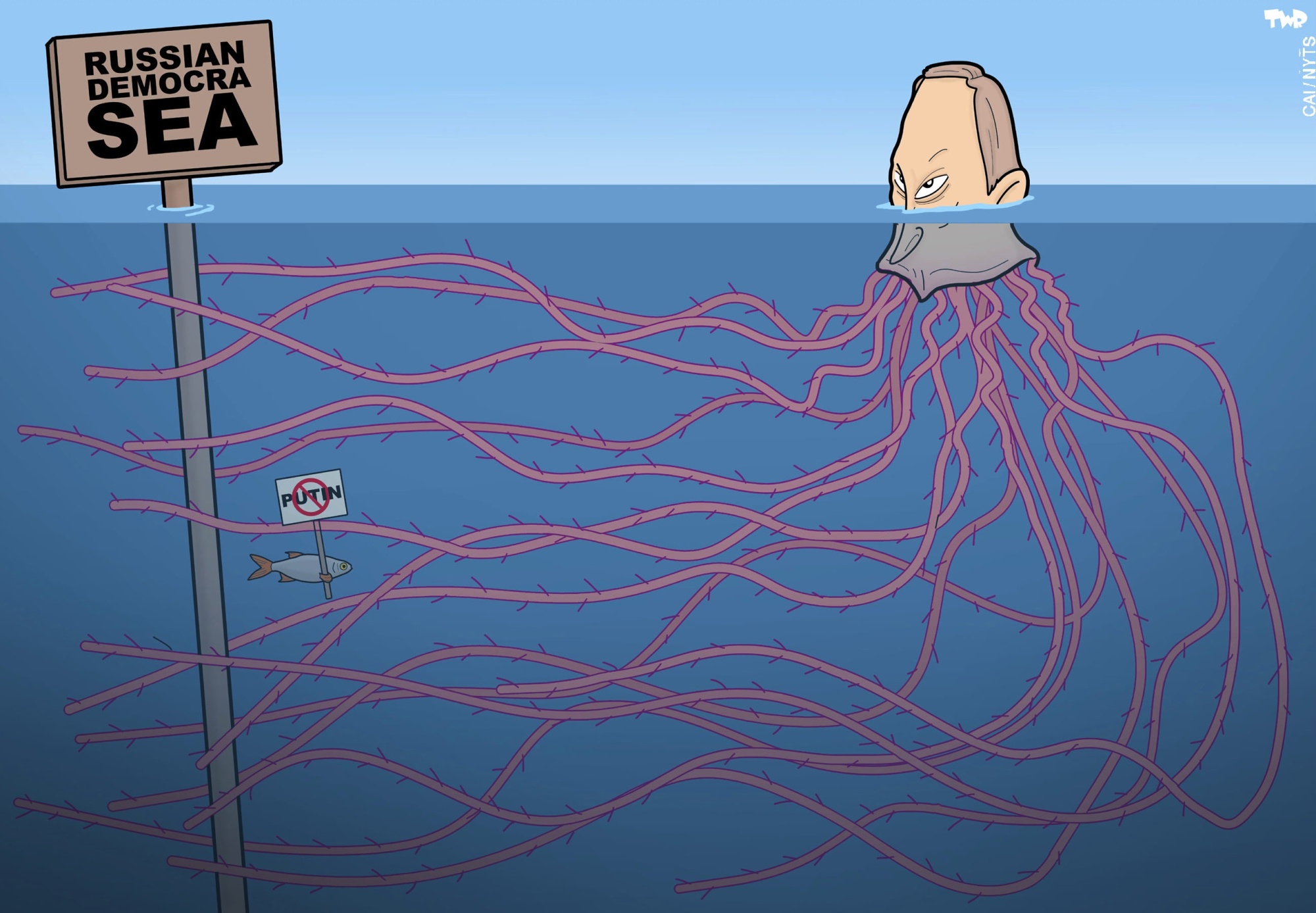The outcome of Russia's presidential election on March 18 is a foregone conclusion: the incumbent, Vladimir Putin, will win after garnering five to six times more votes than the second-place candidate. Elections in Russia today are no more fair, free or competitive than in Soviet times. The only difference is that only one candidate was on the ballot back then, whereas nowadays there are several, to make the exercise seem more credible.
Another certainty about the upcoming election is that Putin will once again reincarnate himself, as he has done four times already. His earlier rebirths came in late October 2003, after the arrest of the now-exiled oligarch Mikhail Khodorkovsky, then in 2004, when another new-model Putin emerged for that year's election. After the 2008 election, Putin had to find ways to manage Russia's newly elected president, Dmitry Medvedev. And then in 2012, a belligerent Putin — the one who would later invade Ukraine — rallied his supporters on Moscow's Poklonnaya Gora plaza, overcame mass protests and returned to the presidency.
Despite his knack for transformation, Putin is unlikely to introduce any substantive policy reversals after his coming victory. Bold, comprehensive reforms of the type proposed by the liberal former Finance Minister Alexei Kudrin are not in the cards. Putin is an old dog; he will not learn new tricks.



